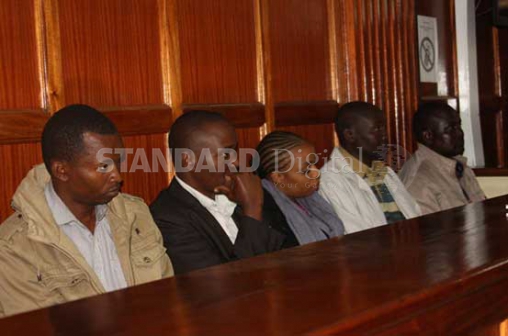×
The Standard e-Paper
Smart Minds Choose Us

The prosecution has laid bare the planning and chilling execution of lawyer Willie Kimani, his client and a taxi driver by police officers.
Deputy Director of Public Prosecutions Nicholas Mutuku narrated in court the details of the horrific killings in the middle of an open field on the outskirts of Nairobi in what is turning out to be a classic example of police extra-judicial killings.